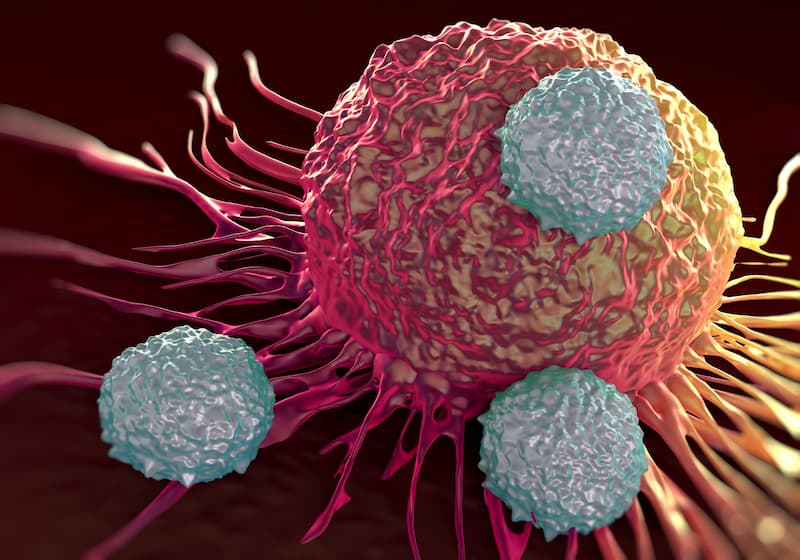Childhood Cancer Survivors May be at High Risks for Loneliness
Young adult survivors of childhood cancer may be at a higher risk of experiencing psychological and physical health issues associated with loneliness.
An elevated risk of loneliness has been observed among young adult survivors of pediatric cancer, which could be correlated with the development of emotional distress, risky health behaviors, and new-onset chronic conditions, according to findings from the retrospective Childhood Cancer Survivors Study.
“We found that young adult survivors of childhood cancer are at elevated risk of experiencing loneliness, and that feelings of loneliness were associated with anxiety, depression, engagement in risky health behaviors, and the development of chronic health conditions," according to an expert from St. Jude Children's Hospital.

Survivors of childhood cancer were more likely than the control group of siblings to report feelings of loneliness at baseline and follow-up (prevalence ratio [PR], 2.2; 95% CI, 1.7-3.0). Loneliness at baseline and follow-up among survivors correlated with an elevated risk of anxiety (relative risk [RR], 9.8; 95% CI, 7.5-12.7), depression (RR, 17.9; 95% CI, 14.1-22.7), and current smoking (odds ratio [OR], 1.7; 95% CI, 1.3-2.3) at follow-up.
At follow-up only, investigators noted an association between loneliness among survivors and suicidal ideation (RR, 1.5; 95% CI, 1.1-2.1), heavy or risky alcohol consumption (RR, 1.3; 95% CI, 1.1-1.5), and new-onset grade 2 to 4 chronic conditions (RR, 1.3; 95% CI, 1.0-1.7).
“Young adulthood is a unique developmental period marked by increasing social expectations,” corresponding author Tara M. Brinkman, PhD, Department of Epidemiology and Cancer Control and Department of Psychology at St. Jude Children’s Hospital, stated in a written comment to CancerNetwork®. “We found that young adult survivors of childhood cancer are at elevated risk of experiencing loneliness, and that feelings of loneliness were associated with anxiety, depression, engagement in risky health behaviors, and the development of chronic health conditions.”
According to Brinkman, the data suggested that screening for loneliness should be performed regularly as part of routine mental health surveillance in survivors of pediatric cancer.
The Childhood Cancer Survivors Study was a retrospective cohort study including longitudinal follow-up with survivors of childhood cancer who were treated at one of 31 participating institutions in North America between 1970 and 1999.
The study included those who survived for 5 or more years following diagnoses of leukemia, lymphoma, central nervous system (CNS) malignancies, kidney cancer, neuroblastoma, malignant bone tumors, or soft tissue sarcoma. Investigators also included a random sample of siblings as a control group.
The primary end point was the completion of the Brief Symptom Inventory-18 (BSI-18), a screening tool for assessing acute symptoms of emotional distress validated with adult survivors of childhood cancer, at baseline and follow-up,.
Secondary end points included measures of emotional distress, health behaviors, health-related quality of life (HRQOL) and chronic health conditions.
Investigators included a total of 9664 young adult survivors of childhood cancer and 2221 siblings in the control group. The median age of survivors at diagnosis was 10.5 years (interquartile range [IQR], 5-15) and 27.1 years (IQR, 23-32) at baseline.
The most prevalent diagnoses among survivors of childhood cancer included leukemia (35.0%), CNS tumors (14.1%), Hodgkin lymphoma (15.0%), and bone tumors (10.0%). Additionally, 56% of survivors received radiation therapy, of whom 25% received non-cranial and 31% receiving cranial radiation.
Survivors were more likely to report loneliness at baseline if they received intrathecal methotrexate (OR, 1.39; 95% CI, 1.06-1.81), amputation (OR, 1.67; 95% CI, 1.14-2.44), non-cranial radiation (OR, 1.29; 95% CI, 1.04-1.60), and 20 Gy or more of cranial radiation (OR, 1.61; 95% CI, 1.30-1.99). Survivors were more likely to report loneliness at baseline and follow-up if they received an amputation (OR, 1.82; 95% CI, 1.14-2.91), corticosteroids (OR, 1.31; 95% CI, 1.02-1.70), and 20 or more Gy of cranial radiation (OR, 1.56; 95% CI, 1.21-2.02).
Loneliness at any time correlated with an increased risk of impaired HRQOL at follow-up, including impaired general health (RR, 2.56; 95% CI, 2.26-2.90), social function (RR, 4.95; 95% CI, 4.26-5.74), and mental health (RR, 6.94; 95% CI, 6.14-7.85).
“Although our study focused on young adulthood, future studies should characterize loneliness in the growing aging population of childhood cancer survivors,” the study authors concluded.
Reference
Papini C, Fayad AA, Wang M, et al. Emotional, behavioral, and physical health consequences of loneliness in young adult survivors of childhood cancer: results from the Childhood Cancer Survivor Study. Cancer. 2023;1-12. doi: 10.1002/cncr.34633
How Supportive Care Methods Can Improve Oncology Outcomes
Experts discussed supportive care and why it should be integrated into standard oncology care.